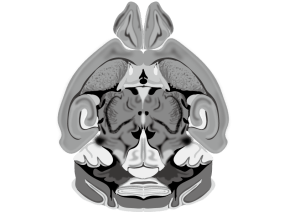Potato Chips or any junk food for that matter can be very addicting after just the first bite. The high concentrations of carbohydrates, sugars, and fats commonly found in these processed foods contribute to one of America’s greatest health risks, adult obesity. Today, over 40% of America’s adult population is considered obese and in the last 20 years, the prevalence of severe obesity has almost doubled to 9.2%. A single bag of Lay’s Potato Chips contains 15g of carbohydrates and around 170mg of sodium which could take around 15 mins of very intense workout to burn off. We have learned in AP Bio that consuming many carbohydrates without burning them off through exercise results in carbs converting into fatty acids during cellular respiration. So, when looking into obesity, researchers from Osaka Metropolitan University wanted to understand why “High-calorie foods — high in fat, oil, and sugar” tend to be overeaten.
The researchers investigated the specific gene behind overeating and linked it to one named “CREB-Regulated Transcription Coactivator 1 (CRTC1).” In the past, trials on mice have indicated that when the CRTC1 gene is removed, they become more obese indicating that it “suppresses obesity”. But, it is now known that CRTC1 is found in all neurons around the brain so, they wanted to dive deeper and find the specific mechanism or neuron within this gene that reduced obesity.
First, Associate Professor Shigenobu Matsumura, who lead the research, hypothesized that “CRTC1 expression in MC4R-expressing neurons suppressed obesity because mutations in the MC4R gene are known to cause obesity.” So, they conducted trials on mice, manipulating the MC4R-expressing neurons to test their theory. It turns out that when on a standard diet, the original mouse and the one with the manipulated MC4R gene remained the same weight. But, when put on a high-fat diet, or one more resembling junk food, the mouse that was deficient with the CRTC1 MC4R neuron became “significantly more obese than the control mice and developed diabetes.” Reflecting on this outcome, the researchers have concluded that the CRTC1 gene plays a role in controlling our portions. Looking forward, the researchers hope this will lead to a better understanding of what causes people to overeat.
In our current AP Biology unit, we have been learning about cell respiration and the way our body consumes both O2 and food to create ATP energy. Our body can break down glucose through glycolysis, convert it into two Pyruvate, and then Acetyl CoA, to then create NADH and FADH2 through the Citric Acid Cycle to produce about 28 ATP energy molecules through Oxidative Phosphorylation. Other nutrients we consume like fats and proteins are also converted to ATP energy when needed but, when no energy deficit is created through activity, these nutrients along with excess glycogen are bound to insulin to create fat around the body. Looking forward, it is important to understand how addictive these unhealthy foods can be on a neurological and biological level, warning us of the dangers of overconsumption.




namurthy
Hi Lukewarm! That stats included in your post were shocking! It’s crazy to think that over 40% of America’s adult population is considered obese. I really liked learning about the MC4R gene, thats known to cause obesity! The connection to AP bio was interesting because I didn’t know that if the foods we consumed aren’t used to create ATP then it turns into fat. In this recent study I found, in which participants were either on an ultra-processed diet vs a non-processed diet, “participants on the ultra-processed diet consumed calories 50 percent faster”. (https://chathamworks.com/news/research-confirms-that-highly-processed-foods-make-you-gain-weight). This is because like chips, processed food is considered ‘better’ tasting, and easier to eat. I have definitely caught myself halfway through a bag of chips before and now I know why!